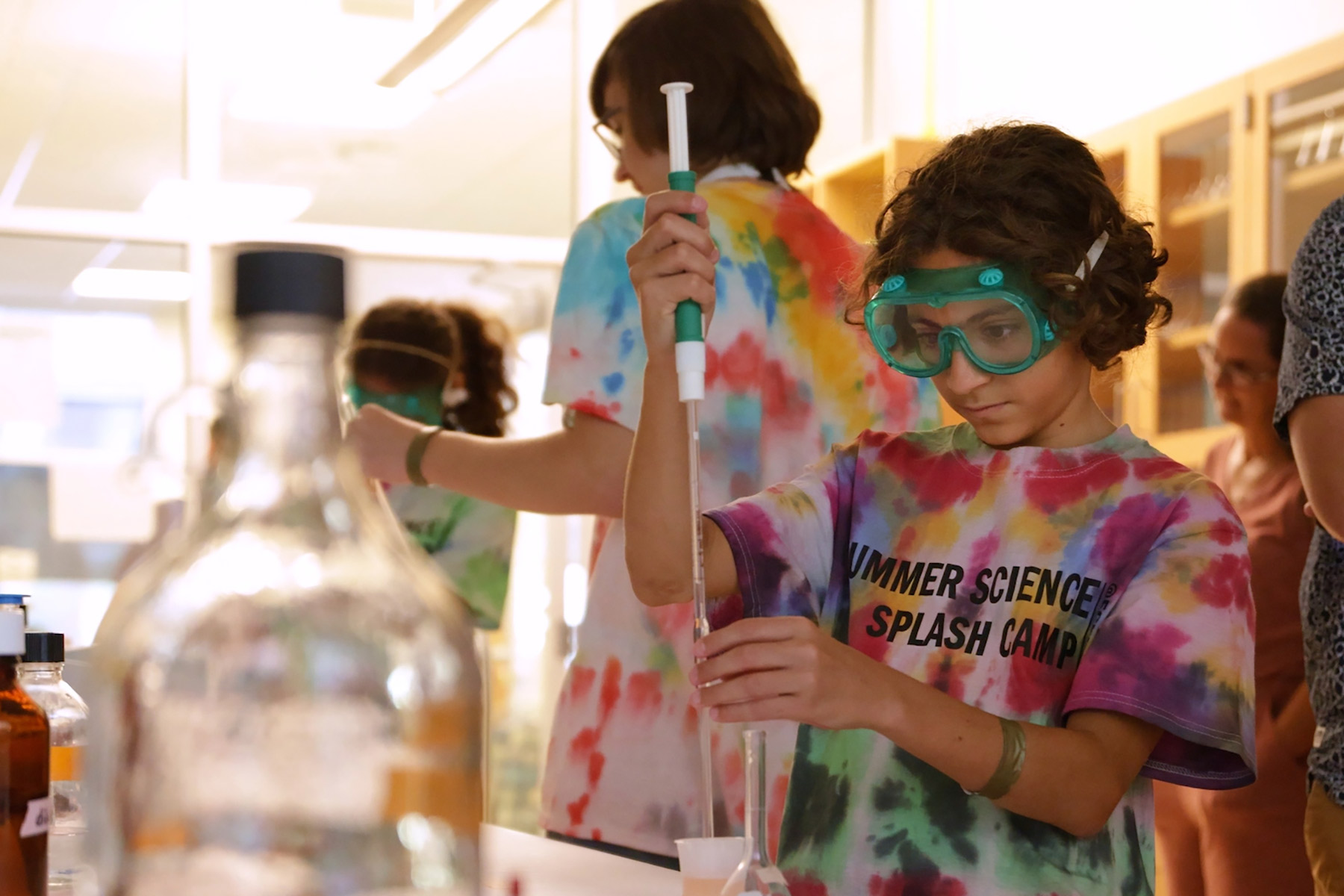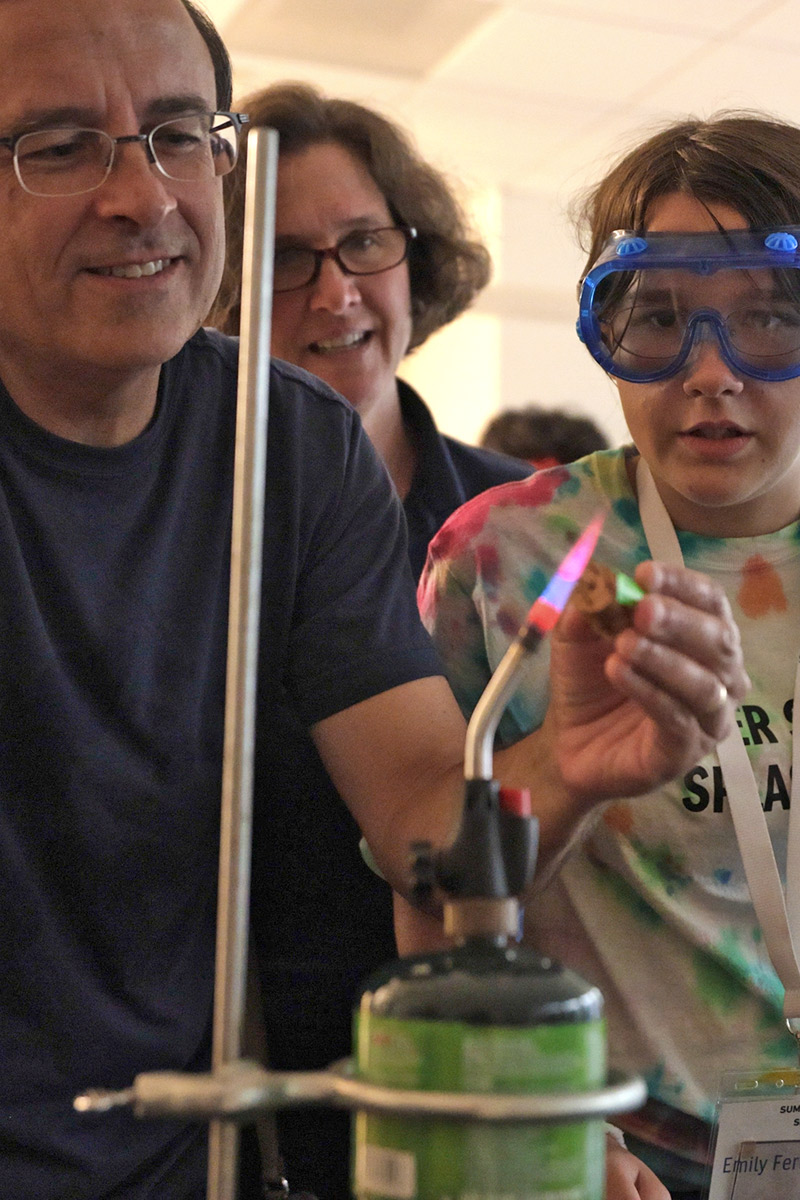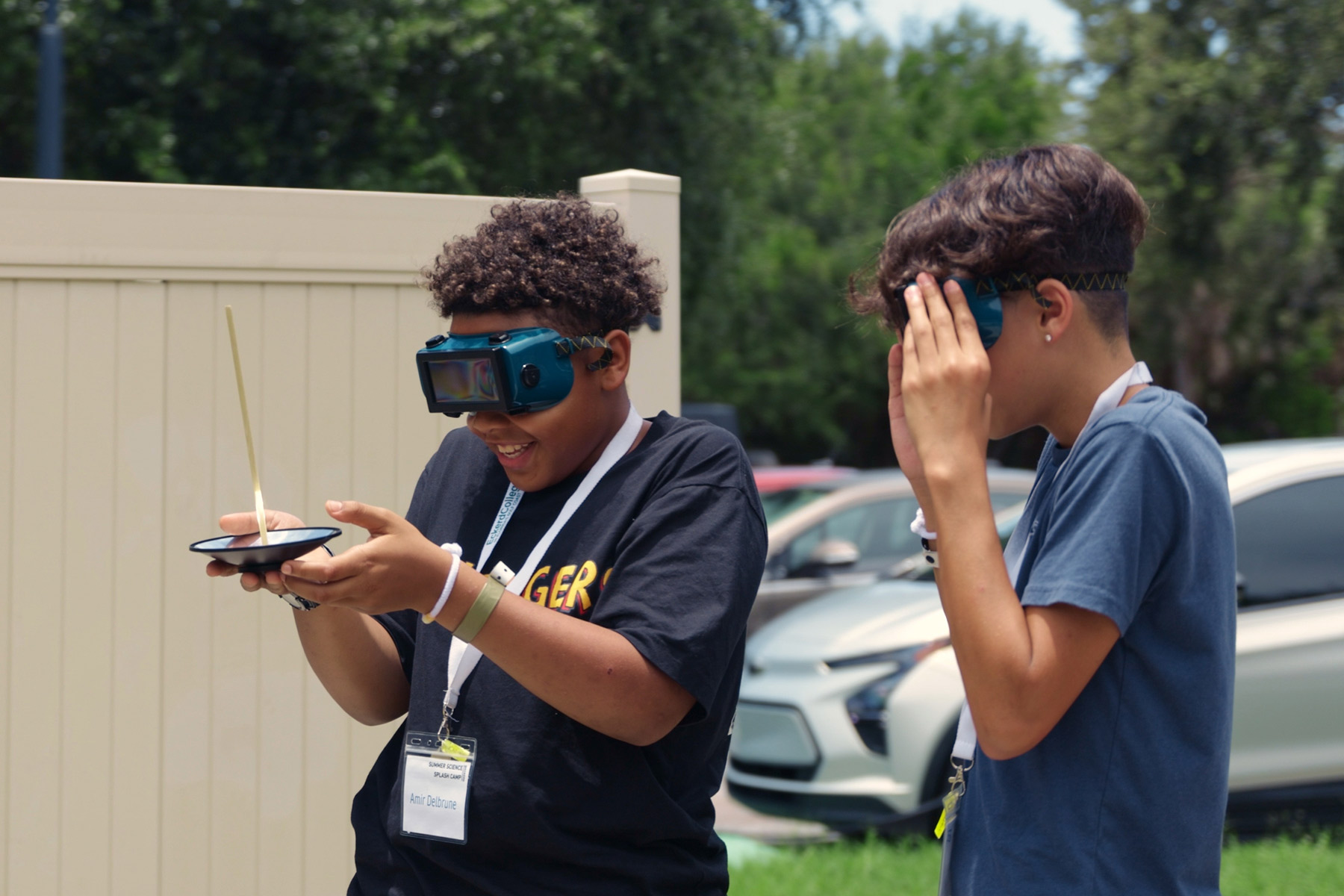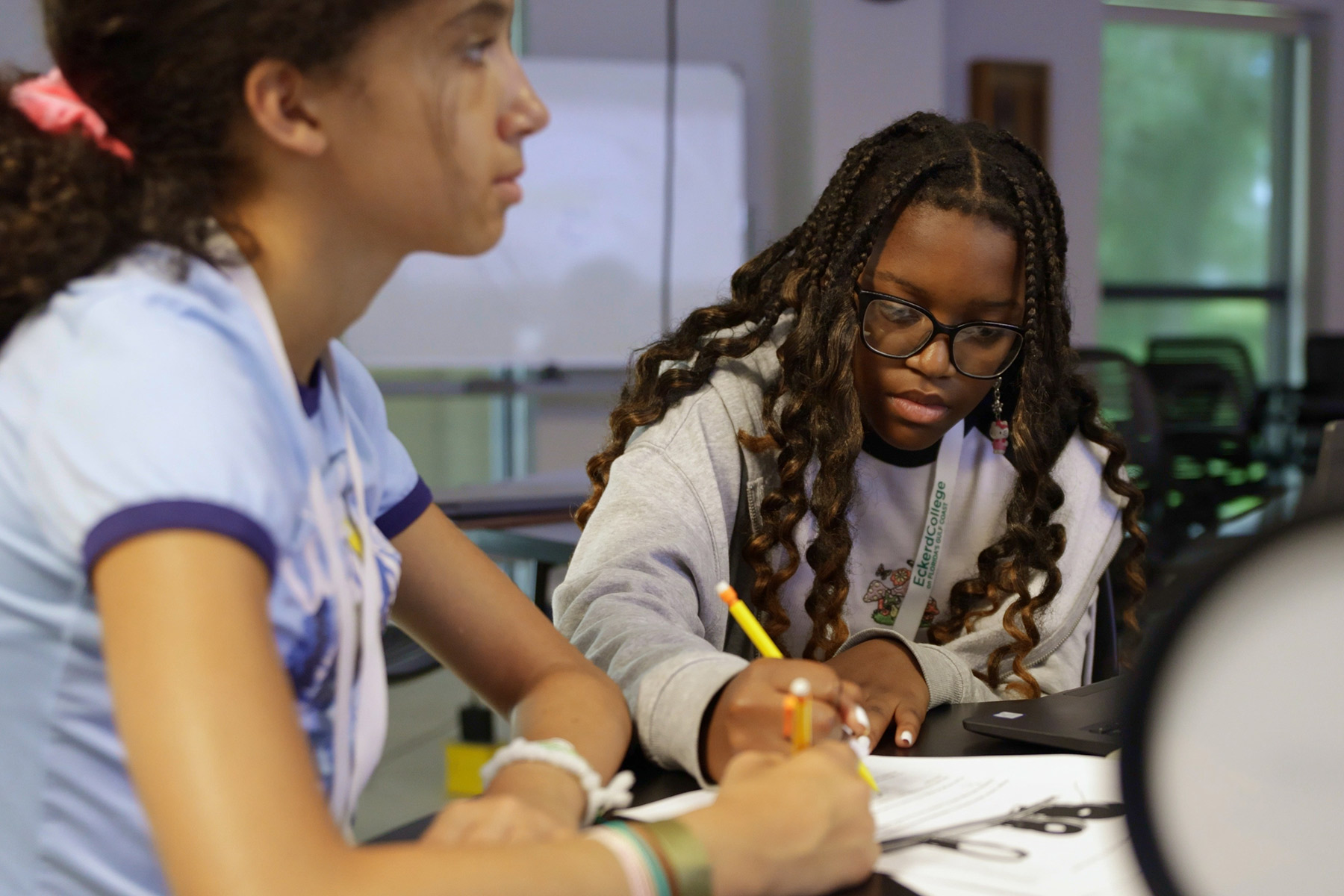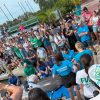Eckerd College’s annual residential Summer Science Splash Camp—where local middle school students spend a week on campus conducting scientific experiments and learning about chemistry, physics, mathematics and other science-related subjects—received a major boost recently when it was awarded a $22,000 grant from Community Foundation Tampa Bay.
The grant will help provide partial or full scholarships to campers from low-income families, the amount of which will be based on financial need. So far, 32 families are receiving scholarship assistance, which accounts for about one-third of all campers. The average partial scholarship amount given out for 2024 is currently $480, more than half of the total cost of $799.
“We are very excited about how many scholarships we are able to offer to Summer Science Splash Camp,” says Kristen Rynerson ’10, conference and pre-college coordinator at Eckerd. “We recognize that the cost of this overnight residential camp is high, but being able to cut the cost of attendance for those in need brings this crucial STEM [science, technology, engineering and math] summer programming to marginalized students who would likely otherwise not have the opportunity to attend anything like it.”
Community Foundation Tampa Bay is a 501(c)(3) public charity that, according to its website, “connects people and resources to create meaningful, lasting impact. We are philanthropic partners, connectors and advisers.”
Wilma Norton, the Foundation’s vice president for community connections, explains that the science camp “is a great example of the kind of programs we choose to support with our competitive grants. It increases access to science programming for young people who might not otherwise have the chance. It builds interest in the environment and our natural world. And it gives students ideas for their future education and careers.
“Harold Corrigan, the donor who made this grant possible with his estate gift to the Community Foundation, cared deeply about helping young people advance and grow,” she adds. “We think he would be pleased to know that this program and others like it are part of his legacy.”
Alma DeRojas, grant specialist for strategic initiatives at Eckerd, had assembled and authored the grant proposal.
The camp, whose two sessions run from July 7–12 and July 14–19, is expected to host 96 rising seventh through ninth graders, who will spend their days in Eckerd’s $25 million, state-of-the-art James Center for Molecular and Life Sciences. The students will perform a variety of science experiments with the same high-tech equipment used by Eckerd College students and faculty, under the direction of Anne Cox, Ph.D., professor of physics and the 2021 recipient of the American Association of Physics Teachers’ David Halliday and Robert Resnick Award for Excellence in Undergraduate Physics Teaching.
Cox, who has led the camp since it began in 2012, says the aim is to offer an opportunity to increase interest in STEM careers at a critical stage in students’ academic journeys, and to foster interest and enthusiasm in science through hands-on activities.
The students work closely with Eckerd science faculty, certified science teachers, and Eckerd students majoring in the sciences. They spend their evenings participating in games, watching movies, contributing to team activities and more. Between daily experiments and evening events, they work to gain points for prizes. On the final day, students participate in a poster session and give a presentation to their families.
Since its inception, the camp has engaged nearly 1,200 students in lab activities based on best practices of science education. While activities are designed to be fun, instructors focus on the scientific concepts needed to understand the materials. The results are tangible.
“We started pre- and post-testing the students our first year on the concepts they learned,” Cox explains. “We can show they’ve improved their understanding of science and how they feel about science. They also report being more interested and more enthusiastic about it. We had two students in our first class who attended the camp and later enrolled at Eckerd and were physics majors [Olafur Hauksson ’20 and Charlie Ogg ’20].”
In addition to funding from Community Foundation Tampa Bay, the camp this year received a $5,000 grant from the Suncoast Credit Union Foundation and $5,450 that was raised from 13 individual members of the Academy of Senior Professionals at Eckerd College, an effort led by ASPEC member Julia Lewis. The total contributed by all three constituencies: $32,450.
Worth noting, Rynerson adds, is Eckerd’s partnership with the local Shirley Proctor Puller Foundation’s MASTR (math-art-science-technology-reading) Kids Program. “The program’s focus,” Rynerson says, “is on improving education outcomes for children in the South St. Pete community. In previous summers, we have given full scholarships for some of their participants to attend free of cost.
“Because of their help and collaboration with obtaining the Community Foundation Tampa Bay grant,” Rynerson points out, “we have reserved eight full scholarships for MASTR participants to attend Summer Science Splash free of cost in 2024.”





